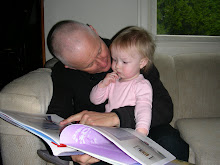God aches at the disunity in the world... it would be useful for church folks to make a list of the agents of separation in their community and parish and then to address those agents - through budget and through programming - to see how the church might serve God's will for unity in a world of fragmentation. Where are the crunches in your life? We know about some standard ones of old-young, rich-poor, Black-white, conservative-liberal, male-female. In the church sometimes it is people-leadership, or even parish-diocese. We won't run out of agenda to address. All of that which seems so natural to us - it is against the purpose of God; and it is not the wave of the future. (Living Toward a Vision,47)
In response to "Permaculture 3" Andrea wrote, "One of the things our culture struggles with is the desire to hide, to pass by community and not be known." I wonder if she has been reading Brueggemann. This seems to me to be saying the same thing. So, how do we "hide"? How do we choose to "pass by community and not be known"? Why do we make these choices? Are these appropriate choices for Christians?
Brueggeman's idea that we address through "budget and through programming" "the agents of separation" in our community, seems to me an utterly fascinating idea. But I fear I have no clue what it might mean. What could it possibly look like for a church to attempt to address the prevailing culture of fragmentation and to nurture community and connection through its budget and programming?
Read more...
